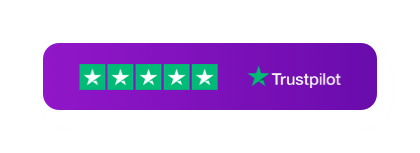Compare broadband with usave
We compare broadband deals from every major provider in the United Kingdom. Most people know exactly what they want from a broadband package, whether it be the best for gaming or a connection for the cheapest price.
If you don't know how to select the best broadband package for your needs then read on below.
If you know exactly what you want, scroll to the top and use our broadband comparison tool to see deals from our selection of the best broadband providers.
How we evaluate deals
For this guide we compared over 140 different deals from 22 broadband providers and assessed them on their advertised speeds, price, extras bundled in, and customer ratings – all available freely online.
We then make use of Ofcom industry data as well as our own proprietary data sources to analyse providers’ real-world speeds and availability across the UK, comparing this with data supplied by providers.
We are constantly keeping an eye on the broadband market, any new deals being released, special offers being promoted, and updating this page accordingly. This page is usually updated multiple times per month, with the broadband deals we recommend changed regularly depending on what is available.
Best broadband deals
Everybody's needs are different. This makes it quite difficult for us to pick out THE best broadband deal. What we have done is looked at what the average person needs to function online in 2024. And it turns out, we expect quite a lot from our broadband provider.
If any of the below statements apply to you, you’ll want to have a look at our best broadband deals we’ve picked out further down the page.
- You like online gaming
- You like having access to the latest movies
- You want to watch the newest episodes of your favourite series
- You enjoy video-calling with family and friends
- You own a 4k-compatible display
- You don’t want to encounter a second more buffering than necessary
Just so you know, we’ve taken into account a few key elements when assessing these deals.
Here’s our criteria:
- Excellent value for money
- Unlimited data usage
- Good national coverage
- Good customer satisfaction - we’ve looked at numerous external sources for this.
Shell Energy Superfast Fibre Plus
Coming in at (if you include the first month free offer) a most reasonable £23.60 per month, this represents some of the best value bandwidth you can get your hands on. Perfect for couples and small families.

Shell Energy Broadband
Superfast Fibre Plus
67Mb / second
Average speed
Unlimited
Usage
£25.99 / month
£9.95 upfront fees
Virgin Media M125 Broadband Only
What’s not to love about this one coming from one of Britain’s highest rated broadband providers. Boasting an excellent average download speed of 132Mbps and a great router, you’ll have no problems streaming or playing online games with this deal.

Virgin Media Broadband
M125 Fibre Broadband Only
132Mb / second
Average speed
Unlimited
Usage
£26.50 / month
£0 upfront fees
Trooli Full Fibre 150 Home
Another provider offering secure and reliable FTTP connections is Trooli, and this deal comes with average download speeds of 150Mbps and upload speeds of 50Mbps. While not yet available all over the country, if you live in the Southeast of England you may be in luck, as Trooli's prices are hard to be beaten.

Trooli Broadband
Full Fibre 150 Home
150Mb / second
Average speed
Unlimited
Usage
£29.99 / month
£0 upfront fees
Sky’s Ultrafast Broadband Plus + Sky Stream + Sky Entertainment + Netflix
If you’re the type that wants it all, this is likely the best broadband deal for you, with average download speeds of 500Mbps. There you are, binging on the latest HBO release on Sky Atlantic or your favourite series on Netflix. No loading, no interruptions. This is more than double the cost of the cheapest deal we’ve picked out, but as the old saying goes, you get what you pay for.

Sky Broadband
Ultrafast Broadband Plus + Sky Stream + Netflix
500Mb / second
Average speed
Unlimited
Usage
£44.00 / month
£0 upfront fees
Pricing may change during contract
Our best broadband deal this month
Having recently dropped their pricing, this deal is now one of the cheapest, widely-available fibre broadband deals you can lay your hands on. You’re only tied in for 12 months too, which is a bonus. Massive thumbs up from the usave team!

NOW Broadband
Super Fibre
63Mb / second
Average speed
Unlimited
Usage
£23.00 / month
£10 upfront fees
Pricing may change during contract
The good:
- Great low price of £23 / month
- Superfast fibre speeds of 63 Mbps on average
- Widely available across the UK
- Only a 12 months contract
- Add on Now's fantastic Entertainment, Sport, or Cinema memberships for reduced price/month
The bad:
- £5 delivery fee for the router
Our verdict:
In our opinion, this is the best all-round broadband deal available in terms of price, availability, speed, and included extras.
With a 63 Mbps download speed, unlimited data, a price of just £23 per month, there aren't any other broadband deals available that can match this package for pure value. Although the price has gone up in recent months, it's still good deal compared to competing packages, considering the speed and a year of free calls.
On top of this, you can add on any of Now's TV Membership products for a reduced rate when you take out this broadband package, getting you access to premium Sky TV content for a much lower price than normal.
How it compares to similar offers:
| Provider | Deal | Monthly Cost | Avg. Speed | Upfront Fees | Contract Length |
|
|
Super Fibre | £23 | 63mbps | £5 | 12 Months |
|
|
Full Fibre 65 | £28 | 77mbps | £15 | 18 Months |
|
|
Unlimited Fibre Extra | £26.99 | 66mbps | £0 | 24 Months |
|
|
Fibre 2 | £26.00 | 67mbps | £0 | 24 Months |
|
|
M125 Fibre Broadband Only | £30.00 | 132mbps | £0 | 24 Months |
|
|
Superfast Fibre Plus | £24.99 | 63mbps | £0 | 18 Months |
Looking for cheap broadband?
We know that for some people, it’s just a reliable broadband connection that you’re really after. No bells, no whistles. That's why we have hand picked a selection of cheap broadband deals which we think fit the bill and are sufficient for most households.
To decide on them we have taken into account:
- Broadband provider review score
- Contract length
- Usage limits
- National coverage
- Average speed
- Total contract cost
When picking out these deals we haven’t necessarily gone for the cheapest, but the best value for money.
Shell Energy Superfast Fibre
First up, we have Shell Energy’s Superfast Fibre. Whilst this might not be the cheapest broadband deal on our site, it offers a fibre connection with a decent speed for just £24.99 per month. Not a bad contender at all.

Shell Energy Broadband
Superfast Fibre
38Mb / second
Average speed
Unlimited
Usage
£23.99 / month
£9.95 upfront fees
Talk Talk Full Fibre 65
Next, we've chosen the Full Fibre 65 deal from TalkTalk. It offers almost double the speed compared with the package above, but is only slightly higher in cost at just £31 per month.

TalkTalk Broadband
Full Fibre 65
77Mb / second
Average speed
Unlimited
Usage
£31.00 / month
£15 upfront fees
Pricing may change during contract
Now Broadband Super Fibre
Now Broadband’s Super Fibre, with pay as you go calls, comes in at a great price point of just £23 per month. Another great feature of this deal is the contract length - you’re only tied in for 12 months which is a rarity at the moment.

NOW Broadband
Super Fibre
63Mb / second
Average speed
Unlimited
Usage
£23.00 / month
£10 upfront fees
Pricing may change during contract
Our cheapest deal in January 2024
Gigaclear Superfast 200Mbps
The cheapest broadband deal in the UK at the time of writing is from Gigaclear. With impressive average download speeds of 200mbps, this superfast fibre deal comes in at a ridiculously cheap £17 per month! However, it is only available in select locations, so you'll be lucky to get your hands on this deal.

Gigaclear Broadband
Superfast 200Mbs
200Mb / second
Average speed
Unlimited
Usage
£17.00 / month
£0 upfront fees
Our fastest broadband tariff in January 2024
The fastest broadband deal in the UK currently is Virgin Media's Mega Volt Bundle.
Not only does this broadband deal come with an average download speed of 1,130 Mbps, it also comes with Virgin TV, Sky Sports HD, Sky Cinema HD, unlimited calls to UK landlines & mobiles, Netflix, and an O2 sim card with unlimited data.

Virgin Media Broadband
Mega Volt Bundle
516Mb / second
Average speed
Unlimited
Usage
£85.00 / month
£0 upfront fees
What to consider when researching broadband:
What broadband speed do you need?
When comparing broadband deals, consider how many people will be using your home Wi-Fi connection and what they’ll be doing; the more people that are using your internet connection, the more bandwidth you will need.
Broadband speeds are represented as megabits per second (Mbps) and the number you see advertised will be the download speed.
- Recommended speed for small households (1-2 people) 30 Mbps+: Ideal for general internet use and streaming. If you cannot access a connection with this speed, ADSL will do fine for up to two people, but we will always recommend a fibre connection where possible.
- Recommended speed for medium households (3-4 people) 50Mbps+: A household with 3 or 4 people will require more bandwidth in order to prevent any drop outs. If you can get a connection with >50Mbps, we think this is what you should go for.
- Recommended speed for large households (5+ people) 100Mbps+: If you live in a flatshare or have a large family, we recommend opting for a connection speed greater than 80Mbps or even 100Mbps. It will help make sure no one is frustrated with slow speeds when multiple people jump online at once.
The above should give you a very general idea of the bandwidth you should look for in a new internet package. If you are into gaming or are a power user it might be a good idea to look into investing in gigabit internet, or another ultrafast or hyperfast connection.
For more information on what broadband speed you should get, read our helpful guide What broadband speed do I need?
If you’re not sure what speed your current connection provides, you can find this out easily with our broadband speed test.
The length of the contract:
Internet packages available range from 30-day rolling no contract broadband, to longer-term tariffs lasting up to 12 months, 18 months, or 24 months.
You can save money and earn perks (including free setup) by signing up for a longer deal, but you’ll sacrifice flexibility. Most providers will charge you a cancellation fee if you quit before the end of your contract.
Overall cost:
Consider not only the monthly cost but also any upfront costs that come with a new contract. This can include equipment fees for routers, delivery, or installation fees.
We make these fees clear on all our listings, to make selecting a broadband deal simpler for you.
If you use our postcode checker, we sort all the internet packages available to you by overall cost, from the lowest price to the highest. This means you will be able to quickly identify the cheapest broadband deals available in your area.
Bundling options:
Also interested in a new television subscription, or are you looking for a new mobile sim?
Many broadband providers offer bundling options with their internet packages, meaning you can add on products like the below:
- Television subscriptions (e.g. Sky, BT, Virgin)
- Unlimited telephone calls (UK, mobile, international)
- Mobile sims (Virgin)
There are quite a few bundling options available, and their prices can vary quite a bit, so make sure you do your research before you commit to a new contract.
Perks and incentives:
Some broadband providers will offer free gifts as an incentive, including cashback, reward cards, subscriptions, or free tech.
Both BT and Plusnet do this regularly, but they are not the only ones! To compare broadband packages with perks and incentives, go to our broadband deals with free gifts page.
Customer service:
Many providers use Openreach cables, essentially supplying the same broadband service. As a result, customer service is probably the main differentiator between ISPs.
To make your life easier, we have compiled a list of the best and worst broadband providers, where we detail how well major UK broadband providers stacked up against each other in terms of customer service.
Terms and conditions:
It’s important to read the fine print of any contract, so you know exactly what you’re signing up for.
Look out for any information about exiting the contract, including penalties for leaving early and the circumstances under which you can duck out without paying any fees.
You’ll also want to take note of any download limits or traffic management policies that your ISP might employ.
Enter your postcode to find deals near you
What types of internet connection are there?
Before you look through specific broadband options, you should know what type of broadband deal you’re after - whether it’s a superfast fibre connection or a slower ADSL connection.
Superfast fibre optic:
Fibre broadband delivers internet over fibre optic cables. Superfast broadband connections (available from most broadband providers) with download speeds of over 24 Mbps, are usually FTTC broadband, or fibre to the cabinet.
These connections use fibre optic cables between the local phone exchange and your street cabinet, but make the final leg of the journey (to your doorstep and router) on the copper wires of the existing telephone network.
Some providers, like Virgin Media, offer cable connections, which use coaxial cables for that last stretch. Cable is usually faster than FTTC connections, but comparable to FTTP connections.
Ultrafast & G.Fast:
A few providers offer now ultrafast broadband, which delivers average download speeds exceeding 100 Mbps. Ultrafast broadband isn't yet available everywhere in the country, and tends to cost more than standard fibre. If you're a heavy user, however, it can be worthwhile.
G.Fast is a fibre optic/copper phone line hybrid, which uses different frequencies to deliver internet over the same infrastructure that FTTC does, at speeds of up to 300 Mbps. However, G.Fast connections are only available to a small percentage of UK homes.
A postcode search will tell you if these ultrafast connections have reached your neighbourhood.
ADSL broadband:
ADSL, also known as standard broadband, operates over the copper wires of the landline phone network and delivers average download speeds of around 11 Mbps.
ADSL broadband plans are typically the cheapest broadband deals on the market, starting at around £17 a month including line rental.
We won’t ever recommend a household opt for an ADSL connection, unless they have no other choice. The technology used for ADSL is quite dated, and will struggle to cope with multiple people using the internet at once.
Mobile broadband:
Mobile broadband connections usually utilise a 4G or 5G connection to connect your device to the internet.
We usually recommend these for people who want to use their internet on the go, but these connections can also be good for people who live rurally and are limited in terms of the cabled connections they can receive.
Satellite internet:
Satellite broadband is useful if you do not have access to a conventional internet connection, such as ADSL or Fibre. It is not very reliable however, and can be quite expensive.
Getting the best add-ons
Broadband & TV bundles:
Many ISPs bundle together broadband connections with live or on-demand TV packages. If you want more channels and streaming options than what Freeview and a Netflix subscription can offer, you might want to consider a triple play (that’s broadband, landline, and TV) bundle from providers like Sky, Virgin Media, BT, or NOW.
With the exception of some deals from NOW and Virgin Media, available on a 30-day rolling basis, you’ll usually need to sign up to a 12+ month contract to access these services. But after signing up you’ll typically get a set-top box, with the ability to pause, rewind, and record live TV, and access to dozens of channels, movies, and box sets.
You’ll want your provider to cater to your TV viewing habits:
A fan of the buzz-worthy US TV imports that typically land on Sky Atlantic? You’ll want to sign up for a bundle from Sky or one through NOW that comes with some premium Sky channels.
Want the most channels possible, and the ability to view them on multiple devices simultaneously? Consider Virgin Media or Sky, which offer the most comprehensive TV packages.
To find a broadband and TV bundle deal that suits you, head over to our broadband and TV page.
Broadband and phone:
Most broadband packages come with a line rental fee, which is typically included in the monthly cost of your broadband package. You’ll usually have to pay this regardless of whether you ever make any landline calls.
Some packages come with free calls included at certain times (evenings or weekends), but the cheapest broadband deals will be pay as you go. To find a broadband and home phone package that’s right for you, head over to our broadband and phone page.
Broadband only deals:
Cheap broadband deals without line rental are available, but they won't always be much cheaper than other plans, and your choice of providers may be more limited.
Enter your postcode to find deals near you
Frequently asked questions
How do I switch broadband providers?
Its pretty simple; put your postcode in on this page to see what broadband deals are available to you.
If you like the look of any of the broadband deals in your area, click on the package in question and you will be taken to the provider’s website.
Follow the instructions there, and you will then be set a date where your new broadband package will be installed.
If you are setting up a brand new connection (for example, you have just moved into a new property), or are switching from one Openreach provider to another, you don’t need to do anything else; they will connect you within a matter of weeks, and inform you if a provider needs to come round.
If you are with a non-Openreach provider already (e.g. Virgin, Hyperoptic, or Gigaclear) and moving (or vice-versa) you will need to contact your old provider and let them know you are cancelling your connection and moving to a new broadband provider. Be careful here, if you cancel within a contract you might be charged an early cancellation fee!
Do I need to cancel my broadband before switching?
In order to get the best deal possible on your broadband, it’s important to regularly check the deals that are on the market. Often, this will result in you needing to jump ship, switching your current provider for one with a better deal.
Once you have selected your new ISP, the process is handled for you. The two companies will work out the handover between them, meaning you do not need to actively cancel your old broadband contract for the new one to start.
One thing to check, however, will be any cancellation fees. If you are still under contact with your current broadband provider, switching may incur a cost.
In many cases, there are ways that this fee can be waived, so always check before switching to avoid any nasty surprises down the line.
Can I cancel my landline but keep my broadband?
The short answer to this question is yes. However, it will depend on what kind of broadband you have, as well as the provider you're with.
For the majority of customers, whether you use an ADSL or FTTC connection, you will need a phone line. This is because the copper wires of the landline networks are used for at least part of the journey delivering internet from the cabinet to your home. Just because you need the copper cable however, doesn’t mean you need to have the landline.
If you have a calls package you don’t want anymore, then you can ask to remove it from your bundle, and it won’t affect your broadband connection. If you’re a full fibre (FTTP) customer, then a phone line isn't needed at all. If you already have one but don’t want it, then you can ask to have it disconnected.
It’s important to note, however, that removing a phone line or cancelling your call package might incur fees, whether through labour or the cost of unbundling your current package. Make sure you do your research beforehand to make sure that it’s going to be worthwhile.
What is unlimited broadband?
Unlimited broadband means just that – there is no limit to the amount of data you can use online. This means you can browse the internet, download files, and stream content as much as you want. You will pay the same amount each month for your unlimited connection, whether you are online constantly or not at all.
Luckily, the vast majority of internet packages these days are unlimited, including some of the cheapest broadband deals on the market. Almost all internet service providers now offer unlimited downloads with their standard packages.
Do I need unlimited broadband?
As we said before, even some of the cheapest packages are ‘unlimited’, so it makes sense to go for one of these packages over the increasingly rare deals that do impose data limts. And if you use the internet for anything more than sending a few emails and checking Facebook, you will almost definitely need unlimited data.
Generally, most people can be categorised into three types of internet user:
- Light User: Uses the internet for just the most basic tasks i.e. writing emails, online shopping, or banking etc.
- Medium User: Uses the internet regularly to check social media and sometimes streams videos and music.
- Heavy User: Uses the internet regularly to stream videos, play online games or download/upload large files.
If you’re a medium or heavy user of the internet, you will almost definitely need a high-speed, unlimited connection. However, even light users could benefit from unlimited broadband. This is because the difference in price nowadays is often negligible, but if you exceed your data limit you could be hit with excessive charges. It is just not worth it.
If you think you’re a light user but you live in a household with other internet users, you too should consider an unlimited connection.
How much does unlimited broadband cost?
The cheapest unlimited broadband offers start at around £18 per month, but you could pay considerably more depending on the provider and what type of package you get.
Slower, ADSL broadband, which offers speeds of up to 30Mbps, will be cheaper than faster, fibre optic broadband which can go up to 1Gbps. As a rule of thumb, the faster your download speeds then the higher the price.
Many providers offer broadband and TV bundles, but adding extra services will usually result in a higher price. If you are an avid sports fan or you watch a lot of broadcast TV, a bundle may be worth it. But if you prefer to watch most of your content online, for example on Netflix or Amazon Prime, you should just pay for what you need.
Where can I get unlimited broadband?
Almost all broadband providers in the UK now offer unlimited broadband as standard. These include:
When you compare broadband deals, you should be aware that not all ‘unlimited’ packages are truly unlimited. Some of these connections will come with usage caps, which means you may find your download speeds reduced at certain times of the day if you use the internet excessively. This is because your provider is attempting to manage the increased traffic so that all customers get a consistent and reliable service. Therefore, these downtimes will usually occur at peak times (i.e. in the evening).
However, unlimited broadband packages from the major providers including BT, Sky, Virgin Media and TalkTalk are almost all truly unlimited.
Will I lose my connection/ have downtime when I switch broadband?
You’ll usually have a short amount of down time before your new connection is set up. If your old contract ends on the day your new one starts, and you don’t need an engineer to install it, then this downtime may last just a matter of minutes.
But if you’re moving into a new property, you may need to wait for a few days or weeks after setting up the contract for your router to arrive. For this reason, it’s a good idea to get this sorted as far in advance of your moving date as possible.
Will an engineer have to visit my home?
This depends on your circumstances and the broadband provider.
If you’ve switching to a new type of connection (e.g. from standard broadband to full fibre), you might need an engineer to visit your home in order to physically set up the new line.
If you are switching from an Openreach provider to a non-Openreach provider, or vice-versa, you will probably need an engineer to come round to set this up.
This can delay things a bit, so it’s worth getting this sorted as early as possible.
Can I get broadband without a phone line?
Yes, it's known as broadband only. While most major broadband providers in the UK will require you to have a phone line as this is what is used to transfer data, there are exceptions.
Virgin Media, for example, use their own network of fibre optic cables to deliver you internet, and you therefore don't need a landline to benefit from their broadband service.
You can also get broadband bundle without a phone line from a few smaller providers such as Hyperoptic and Gigaclear. However, they currently serve very limited pockets of the country, so chances of your home being covered by them yet are slim. Check availability and estimated speeds from these broadband providers by entering your postcode above or giving us a call.
Can I keep my landline number?
If you’re staying in the same house, but just changing provider, you should be able to keep your existing landline number. Be sure to speak with your new internet provider when you switch to make sure this goes through.
What is 'broadband only'?
'Broadband only' is a term that is often used interchangeably with the term 'broadband without a landline', but differs depending on who you speak to.
Broadband only refers to any broadband deal that is exclusively broadband. So, this usually means no line rentals or calls package, and no TV subscription either. This is usually the cheapest type of broadband connection.
Do I need technical knowledge to switch my broadband?
The short answer is no. Even if you choose a self-install option, which involves your provider simply sending a new router in the post, the instructions to set it all up will be clearly provided.
Why can’t I see any offers from my preferred provider after entering my postcode?
Unfortunately, not everyone has a full range of choice when it comes to choosing their next broadband provider. This is because not all providers cover the whole of the UK yet.
BT, and other providers who use its Openreach network, should be available to the vast majority of postcodes. However, Virgin Media is currently available in just over 44% of UK households, while providers like Hyperoptic and Gigaclear cover even smaller areas. To see which providers operate where you live, simply enter your postcode into our broadband comparison tool.
















